Building the Capacity of Malaysia’s Refugee Leaders to Better Protect Children
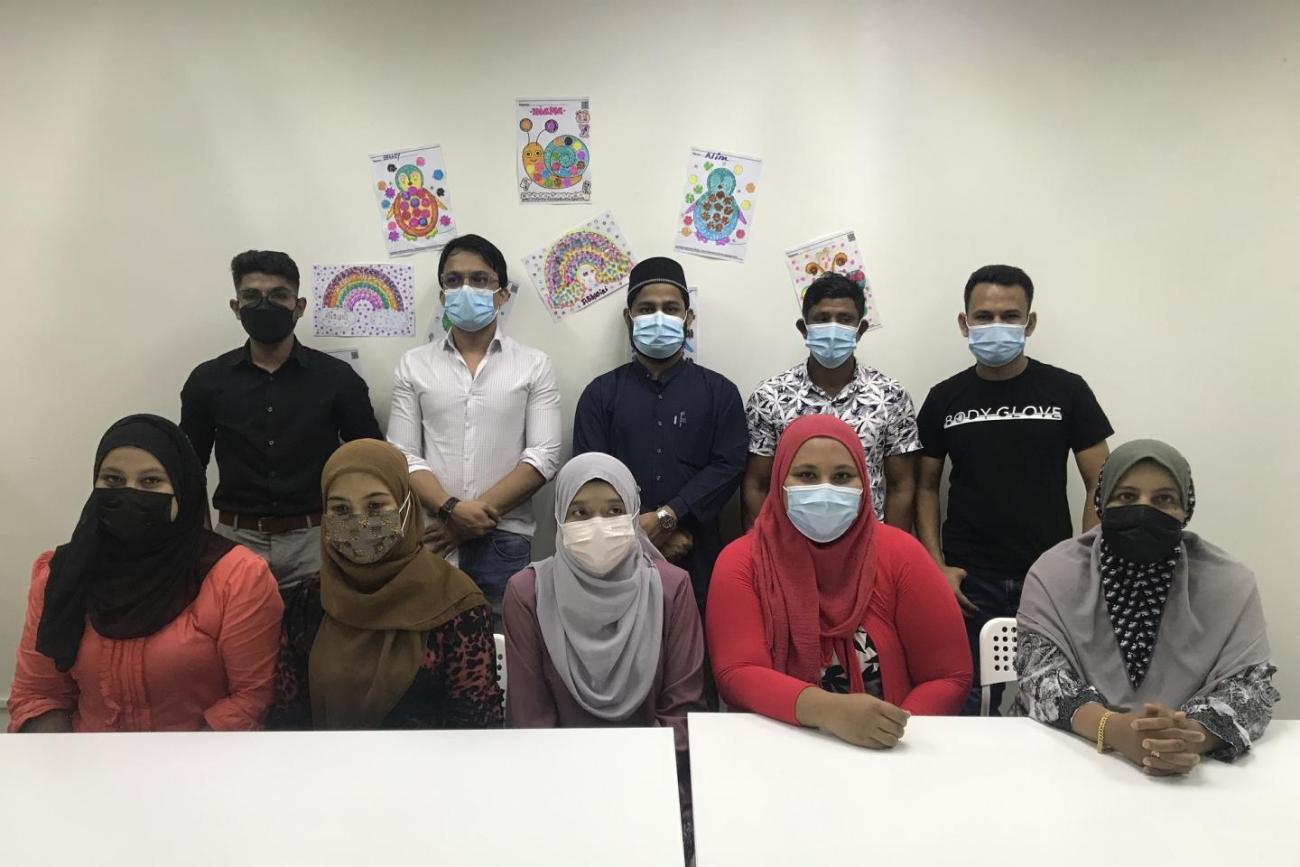
HOST International Malaysia has spent 2 years working with Rohingya & Myanmar-Muslim communities to strengthen child protection mechanisms for refugee children
Read the original article by UNICEF here
by Vinodh Pillai, UNICEF
For marginalised communities already struggling to make ends meet, such as refugees and migrants, life was more difficult than ever when COVID-19 hit.
From experiencing domestic violence at home or having to beg on the streets to put food on the table for their family, to being arrested or detained, and facing increased xenophobia and discrimination, these communities have gone through a lot these last few years.
Joshua Ericsson, HOST International Malaysia country manager, noted the dire impacts COVID-19 has had on refugee children, in particular, adding that there was an urgent need for child protection interventions for refugee children living in Malaysia.
Refugee children are already vulnerable to violence, abuse and exploitation, and the effects of the COVID-19 pandemic, containment measures and economic impact resulted in increased risks of sexual and gender-based violence, as well as child marriage, child labour and trafficking.
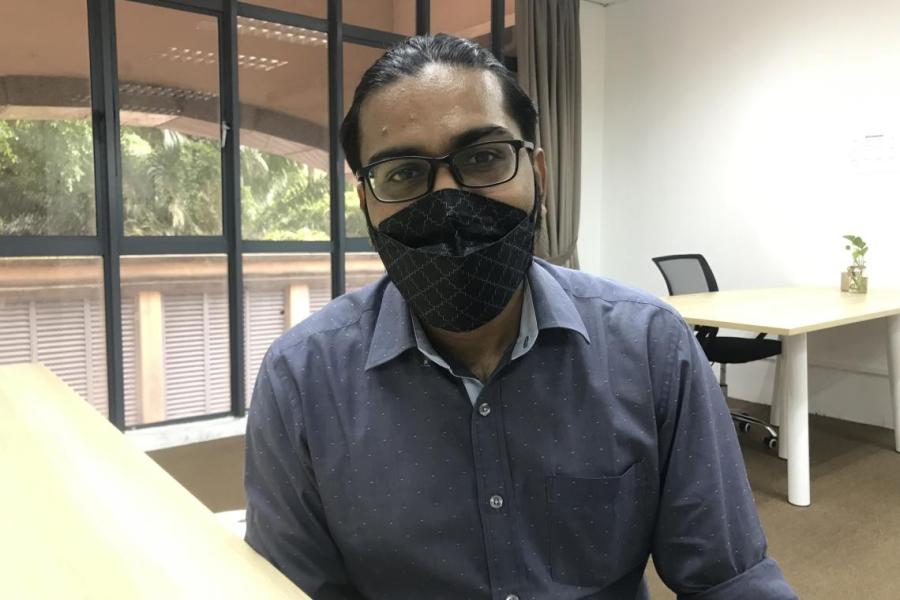
Recognising all this, HOST, supported by the European Union and UNICEF, spent the better part of the pandemic strengthening community-based protection mechanisms for about 600 Rohingya and Myanmar-Muslim children in the Klang Valley.
They did this by providing case management services to at-risk children in need of care and protection – mainly unaccompanied and separated children, those affected by child marriage (including young mothers), neglect, abuse, trafficking, kidnapping and other children who may require shelter or placement within the community.
As part of their case management services, HOST would conduct interviews with children to assess their needs, carry out home visits, monitor their well-being, and undertake family tracing for children who were separated from their parents or relatives. HOST would also make referrals to organisations such as United Nations High Commissioner for Refugees (UNHCR) and other service providers for further support services including refugee registration, psychosocial counselling, safe placements, health services, shelter, food, financial aid and education.
As a result of the pandemic, HOST had to shift gears and conduct most of its activities online, supporting children through remote case management and relying on the assistance of community focal points where needed. Engaging local partners and community-based groups was key to the programme’s success.
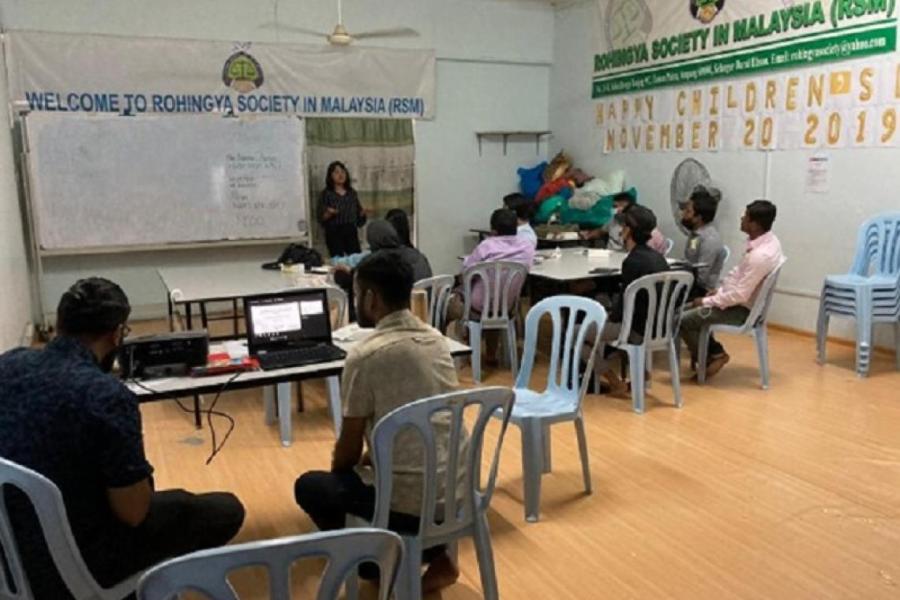
Part of HOST’s programme includes training to build the capacity of community leaders to provide further case management and other support in the wider refugee communities. Thirty community focal points were trained on providing these services to the refugee children and their families.
The involvement of the community representatives is crucial for several reasons. For one, it provides HOST unique insights into the communities’ lives that outsiders would not usually get, which greatly aids organisations like HOST in their work and advocacy.
The community focal points also help identify gaps within existing child protection services, disseminate information, co-design case management solutions and facilitate referral pathways to services for the community, thereby enabling greater access to support services for members of their communities.
"We are trying to build community leaders,” Joshua, 33, told UNICEF during a recent interview at HOST’s office. “We believe that the best way to build protection capacity for vulnerable communities is to identify and strengthen resources within that community, and leverage existing support systems.”
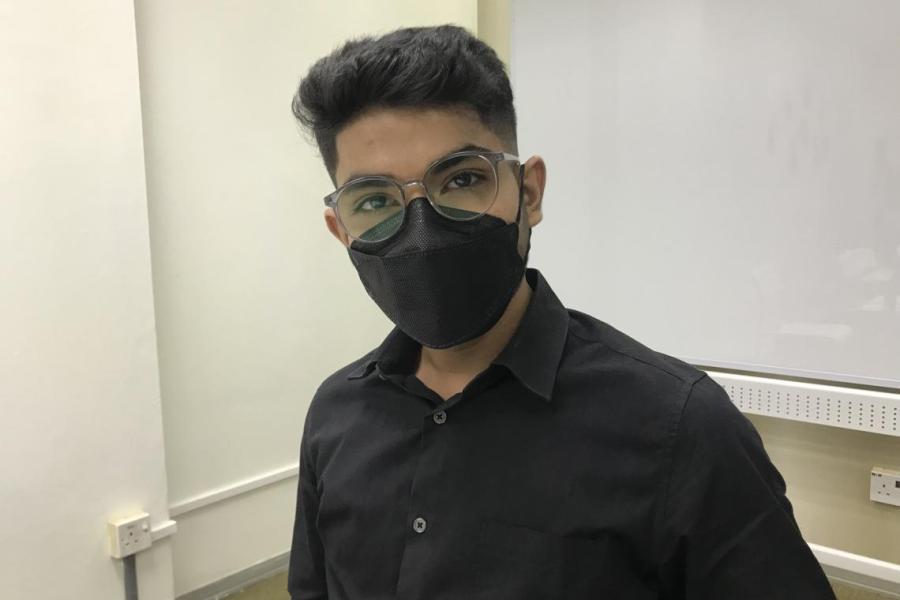
HOST also remunerates the community focal points for their work, as they believe this will pave the way for sustainable community-based advocacy, rather than such work being done by international or local charities.
However, implementing the programme during the pandemic has had its challenges. Community leader Justin, 24, shared that it was difficult to get the community to trust him during lockdown; as in-person visits were not allowed, he took to phone calls to explain about HOST’s work, but the message would have been more effective if relayed in person.
Justin also spoke of UNHCR documentation expiring during lockdown and difficulties getting them renewed as community focal points like him could not go to the UNHCR office; not having such documentation hindered the ability to travel and could lead to a risk of arrest or detention.
Community teacher Feroza @ Khin Than Aye, 46, shared about the effects of living in poverty for refugee children, made worse by the socio-economic impacts of COVID-19. “Some children are very intelligent students, but they are removed from the class because they don't have a phone (as they cannot afford them)”. Some households cannot pay schooling fees, she added.
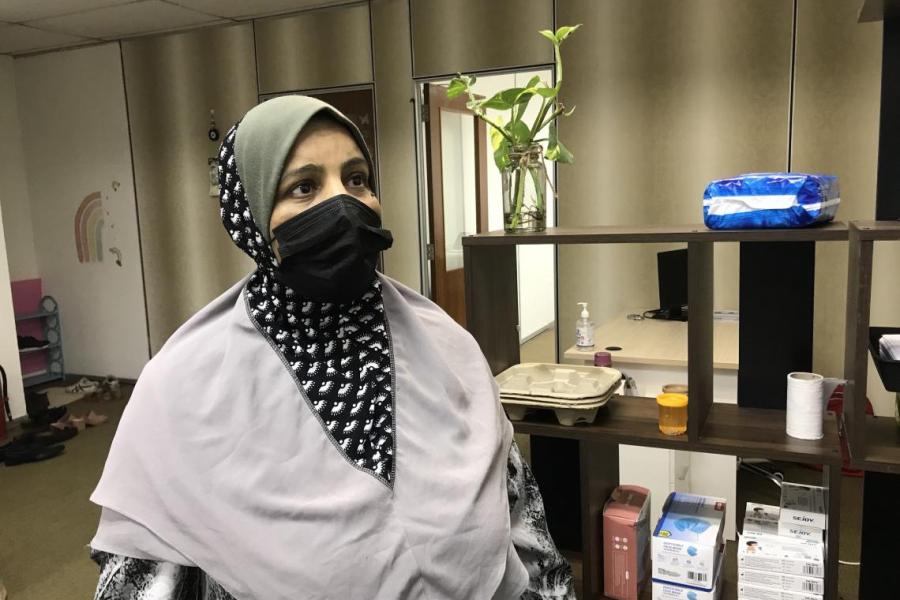
Despite these challenges, HOST has seen the positive impact of their programme, as communicated by the community leaders themselves. HOST has also expressed their commitment in addressing the challenges raised by the community focal points.
“We hope to continue the programme as there is an ongoing need to continue engagement with the community and ensure that sustainable support structures are built for the community to move towards self-reliance and independence,” said Joshua. “That is the goal.”
While the road to recovery from COVID-19 is a long one, HOST remains committed to continue working with the communities and making a difference for refugee-lived realities in Malaysia.
For those interested in connecting with HOST Malaysia to know more about their work, here are their contact details:
HOST International Malaysia
208, Block A, Pusat Dagangan Phileo Damansara 1
No 9, Jalan 16/11, Jalan Damansara
46350 Petaling Jaya
Selangor Darul Ehsan, Malaysia
Facebook
Instagram
Call/WhatsApp: 017-6897827 (9.00am - 5.00pm)
Email: malaysia@hostinternational.org.au
UNICEF supported HOST International Malaysia’s community-based case management and capacity-building programs for Rohingya and Myanmar-Muslim refugee children and communities from August 2020 to April 2022 under the “Protecting Children affected by migration in Southeast, South and Central Asia” project co-funded by the European Union and UNICEF.
This article was produced with the financial support of the European Union. Its contents are the sole responsibility of the writer and do not necessarily reflect the views of the European Union or UNICEF.









